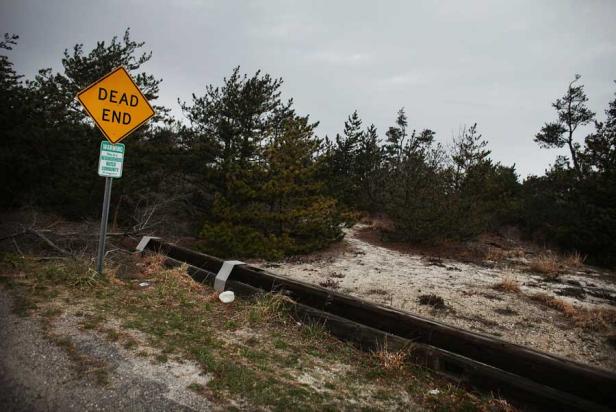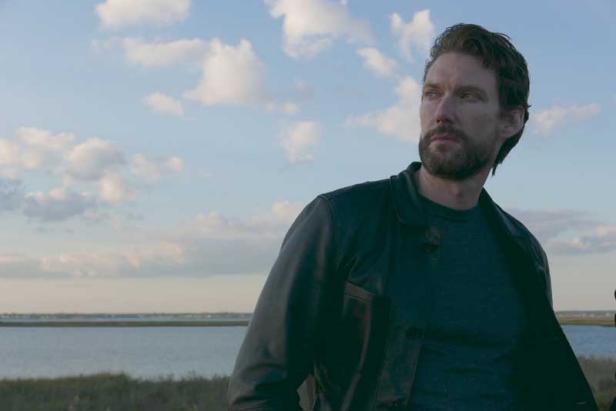8 Questions for Billy Jensen and Alexis Linkletter, Hosts of ID's 'Unraveled: Long Island Serial Killer' Podcast
Ten years after the remains of eleven victims were discovered on Long Island’s southern shoreline investigative journalists and native Long Islanders Billy Jensen and Alexis Linkletter seek to expose the confusion, contradictions, corruption and cover-up involved with the investigation.

Billy Jensen and Alexis Linkletter. hosts of Unraveled: Long Island Serial Killer
Why does it seem like the story of the Long Island Serial Killer has gone somewhat under the radar with the media and the general public, at least beyond New York? Why is it not on the scale of other huge, higher profile crimes - is there a reason?
Billy: Two reasons. One is that the police stopped talking to the press early in the investigation. And the second is that, unfortunately, the majority of the public has no empathy for sex workers. If the victims were college co-eds, there would be a lot more noise about it.
Alexis: Primarily, I think the absence of regular law enforcement updates in the case has allowed it to slip under the radar to a degree. There was vast coverage of the case immediately following the discovery of the victims, but gradually the flow of information to the public slowed to a halt. Largely in cases like this, the public wants to help. However, it's difficult for them to do so if certain pieces of evidence aren't made available to them to engage with. Previously, Suffolk County law enforcement have kept the evidence in this case extremely close to the vest and we've been pleased to see the tides starting to turn under Police Commissioner Geraldine Hart.
What are, if any, the elements of this case that are particular to Long Island? Could this have happened anywhere, or is it specific to an enclave like Oak Beach?
Billy: I grew up on Long Island. I covered crimes on Long Island for half a decade. And I never once stepped foot in Oak Beach. Never even drove past it. That’s how private this place is. For the killer—or killers— the beach means something to him/them. There are plenty of places to dump bodies on Long Island. Why a single stretch of road along the beach?

Area near Gilgo Beach and Ocean Parkway on Long Island where police conducted a prolonged search. [Photo: Spencer Platt/Getty]
Alexis: Some aspects of the Long Island Serial Killer case are exclusive to a place like Oak Beach on Long Island. For example, the taxes are some of the highest in the country, which gives the police an exorbitant amount of power. The geography is unique in that it's surrounded by water on three sides, an island positioned next to one of the largest cities in the world, that the wealthy and powerful flock to on the weekends. Oak Beach is extremely remote, another characteristic conducive to menacing activity. However, on the other hand, many parts of this case are demonstrative of abuses of power everywhere. This case and these Long Island communities act as microcosm for injustices and abuses of power we see every day on a larger scale.
During your investigation a particular lawyer seemed to have threatened you during a phone conversation. Were you fearful? Excited? Both?
Billy: Let’s just say it reminded me of what it felt to work in newspapers back in the day. And that’s a good thing.
Alexis: We did speak to an attorney who represented one of the major players in the derailing of this case. And yes, the lawyer took a certain tone with us. Although, by this point in our investigation- we had received so much resistance, and seen several glimpses into the culture of intimidation present in Suffolk County, that we were almost used to it by that point.
Are there any other instances during this investigation where you felt threatened or menaced? Did former police chief Burke ever make you feel threatened like a lot of those you interviewed?
Alexis: We didn't feel threatened when we were on Long Island, but as word of the focus of our investigation has spread to the powers that be, we're hearing more and more that they're concerned.
During this, or any of the other investigations that you’ve been a part of, or witness to, what more unexpected, unorthodox experts or techniques have been employed to good effect?
Billy: I wish we knew. As much as the Suffolk PD is saying they are being transparent—9 years after the first bodies were found—we still don’t know so much of what is going on. They are using genetic genealogy to identify victims. We also learned they are combing through millions of phone records from back then.
How do the crimes committed at Gilgo Beach compare to others you've covered?
Billy: This has been one of the more difficult ones. It’s one thing to work on a story and have the police not want to talk to you at all. It’s another thing to work on a story and have the police talk to you, but be so cagey in their answers while at the same time recognizing that it was the previous leadership of the police department that bungled the case in the first place. And a lot of cases are bungled, but this was bungled on purpose—because at best, the chief of police had skeletons in his closet and didn’t want anyone sniffing around his business. And he had a friend in the DA. So you have this little mini kingdom doing whatever it would like to do.
Alexis: This case differs in that the previous leadership within the Suffolk County Police Department--which was the agency tasked with solving the case--actually hindered it. That is something we've never seen before.
If you had to guess, what specifically is on the unreleased Shannan Gilbert 911 call that would be so incriminating? When you posed questions about why key pieces of evidence were still being withheld from the public, the current Suffolk County Police Commissioner seemed a bit flustered. Why would that be?
Billy: I don’t like to guess on things like that. But I have no idea why they are not releasing certain things. You release a belt 9 years after the bodies are found. Why wait that long? Within those nine years, someone who might recognize the belt could have moved away from the area. Within those nine years, someone who might have recognized the belt and its owner could have died. And they don’t even release the entire belt. They release a portion of the belt, wait 11 months and now are releasing more photos of the belt. It’s infuriating for us. I can’t imagine what it’s like for the victim’s families.
Alexis: Shannan's potential connection to the other victims is one of the greatest mysteries associated with the Long Island Serial killer case. The speculation is only fueled by the SCPD's secrecy and refusal to release the 911 call. There are inconsistencies in how they categorize Shannan's death, and they have refused to look at evidence associated with Shannan's case. The current police commissioner is in the unfortunate position in having to do damage control for the mistakes of the previous Law Enforcement Regime in Suffolk County.

Spencer Platt
Location near a stretch of beach highway where police found human remains in April 2011.
[Photo: Spencer Platt/Getty Images]
How confident are you about this case being solved?
Billy: This case can be solved. But the public needs to get more involved. And the only way to do that is if the police start sharing more.
Alexis: I believe this case can be solved, but only if the law enforcement leaders in Suffolk County commit themselves to transparency.
The first of the 7 episode ID Podcast series, Unraveled: Long Island Serial Killer, premieres January 27th, with new episodes posted weekly.

About Billy Jensen

Billy Jensen is a true-crime journalist, author, producer and investigative reporter. Originally from Long Island, NY, he has spent more than 20 years reporting about true crime stories, including unsolved murders, missing persons, and serial killers. He has solved or helped solve ten homicides and helped locate missing persons and law enforcement agencies now enlist Billy’s help as a “consulting detective.” Billy’s 2019 book, Chase Darkness with Me: How One True Crime Writer Started Solving Murders (Sourcebooks/Audible) was a New York Times Bestseller. He also helped finish Michelle McNamara’s #1 New York Times bestselling book, I’ll Be Gone in the Dark, about the hunt for the Golden State Killer, which was adapted into an HBO docuseries. He produces two podcasts, Jensen & Holes: The Murder Squad with Paul Holes and The First Degree with Alexis Linkletter and Jac Vanek.
About Alexis Linkletter

Alexis Linkletter is a Long Island-raised and Los Angeles based true crime documentary producer, podcaster, and investigative journalist with a focused interest in serial killers and police corruption. As a producer she has been instrumental in the creative launch of several TV series, including Unmasking a Killer for CNN and Deadly Recall for Investigation Discovery. As a writer she has contributed several true crime stories and essays to Vice on topics ranging from murder and matricide to the death industry and public policy reform. She is also an active podcast producer, writer and interviewer who has conducted more than 100 hours of interviews with law enforcement personnel, victims’ family members and convicted criminals for the podcast The First Degree with Billy Jensen and Jac Vanek.
